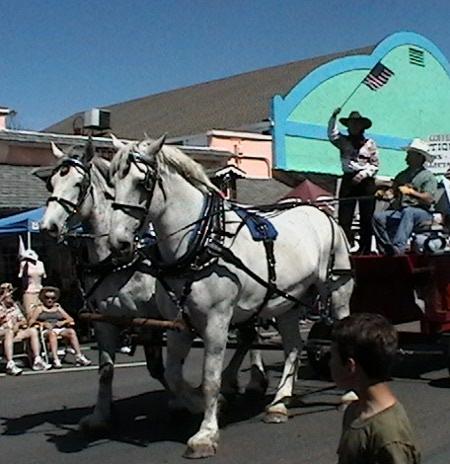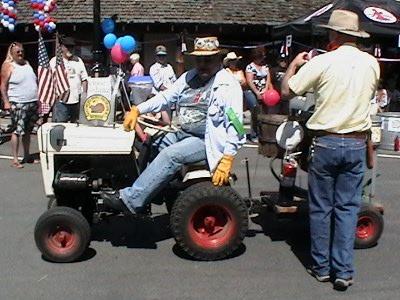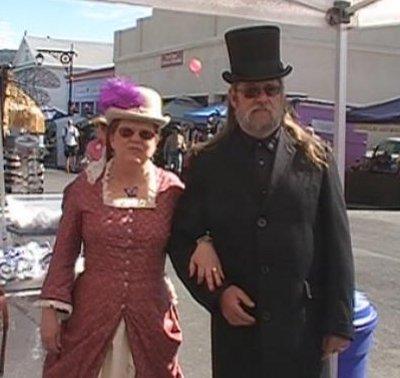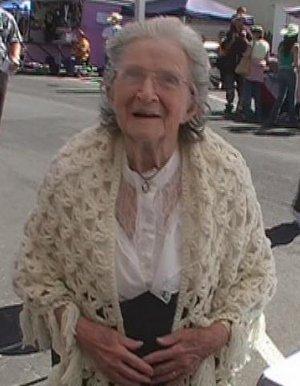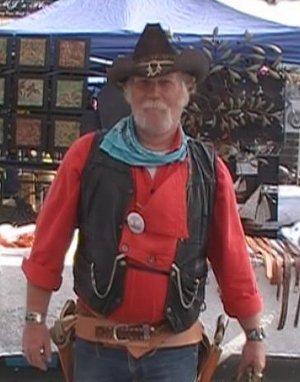LAKE COUNTY – Heated races, expectations for runoffs, upsets for incumbents and low voter turnout aren't unique to Lake County this year.
Tuesday's primary election saw incumbents around the region – some of them in office for many years – dismissed from office or set for November runoffs.
The Tuesday primary also was marked by voter turnout that was low both locally and around the state, which county election officials have previously noted is common for primaries.
In Lake County, just over a third of voters showed up to the polls, running higher than the overall state average, according to state and local records.
This year, local law enforcement races in the county have proved the most heated.
On Tuesday, incumbent Sheriff Rod Mitchell placed four percentage points and 445 votes behind challenger Francisco Rivero. The two men will face off in November after Jack Baxter, a retired police sergeant from San Jose, finished third and was eliminated from the race.
The story was different in Tehama County, where Sheriff Clay Parker – in office since 1999 – was defeated on Tuesday by Dave Hencratt, one of his own detectives and a 21-year veteran of the Tehama County Sheriff's Office, according to details on Hencratt's Facebook page.
Meanwhile, there were several uncontested sheriff's races in neighboring counties in the Sacramento Valley and the North Coast.
Glenn County Sheriff Larry Jones, Colusa County Sheriff Scott Marshall, Mendocino County Sheriff Tom Allman, Napa County Sheriff Douglas Koford and Yolo County Sheriff Ed Prieto faced no opponents in seeking reelection Tuesday.
Sonoma County Sheriff Bill Cogbill did not seek reelection, and Windsor Police Chief Steve Freitas ran to succeed him unopposed.
In Humboldt County, Sheriff Gary Philp retired and was succeeded by Mike Downey, a veteran of his department, who defeated Michael Hislop, the Humboldt County District Attorney's Office's chief investigator and a former Eureka Police officer.
District attorney races show major upsets
District attorney races around the region this June appeared to be more contested overall.
Lake County District Attorney Jon Hopkins, who was seeking a second term in office, placed out of the running to reclaim his seat Tuesday. His challengers, Don Anderson and Doug Rhoades, will now race to November.
Hopkins, contacted by Lake County News on Wednesday, said he wasn't prepared to comment on the outcome of Tuesday's vote or his future plans.
The position in which Hopkins finds himself – an incumbent district attorney out of a job – isn't an isolated incident in races around the region this year.
In Glenn County, following a heated race, longtime District Attorney Robert Holzapfel was defeated by Robert Maloney, who he had beaten for the job in the early 1980s. Maloney currently is assistant district attorney in Shasta County.
Next door in Sonoma County, two-term District Attorney Stephen Passalacqua was defeated by Mendocino County prosecutor Jill Ravitch.
In other races, to the north, in Tehama County, District Attorney Gregg Cohen fended off challenger Kenneth Miller.
Mendocino County District Attorney Meredith Lintott finished first in the primary over challengers C. David Eyster and Matt Finnegan, with Lintott and Eyster slated to be in a November runoff.
In Humboldt County, District Attorney Paul Gallegos is facing a run to November against challenger Allison Jackson, who finished nearly three percentage points ahead of him, according to the Humboldt County Registrar of Voters. Gallegos and Jackson were the top finishers in a field of four.
Colusa County District Attorney John Poyner was unchallenged this year, as were Napa County District Attorney Gary Lieberstein and Yolo County District Attorney Jeff Reisig.
Fewer superintendent of schools races contested
Races for superintendents of schools around the region were mostly uncontested.
Superintendents Larry Champion in Tehama County, Barbara Nemko in Napa County, Garry Eagles in Humboldt County, Paul Tichinin in Mendocino County and Jorge Ayala in Yolo County all ran for reelection unopposed, while Steven Herrington had no challengers as he sought to succeed Sonoma County Superintendent of Schools Carl Wong.
In Lake County, Wally Holbrook and Judy Luchsinger raced to succeed retiring Superintendent of Schools Dave Geck, with Holbrook winning Tuesday with a nearly 19-percent lead, or just over 2,000 votes.
In Colusa County, incumbent Superintendent Kay Campbell Spurgeon finished first in a field of four, followed by Jamie Myers, Julie Struckmeyer and Becky Van Kleeck Poyner, according to the Colusa County Registrar of Voters. Preliminary numbers indicate Spurgeon and Myers will race to November.
In a primary upset, one-term Glenn County Superintendent of Schools Arturo Barrera was defeated by Glenn County Supervisor Tracey Quarne, also a county educator, who chose not to pursue reelection for his supervisorial seat in order to run against Barrera. Preliminary Glenn County Registrar of Voters numbers indicate that Quarne bested Barrera by nearly 17 percent, or more than 1,000 votes.
Low voter turnout statewide
As to voter turnout, statewide approximately 24.9 percent of voters participated in the Tuesday primary, according to California Secretary of State Debra Bowen's office. Lake County surpassed that state average with a 36.1-percent turnout.
Sierra County had the highest turnout of the state's 58 counties with 73.3 percent, while Riverside had the lowest, with 16.5 percent, according to state data.
Election officials are still processing mail-in ballots and conducting the official canvass. The following numbers – compiled from individuals counties and the Secretary of State – are preliminary results, and final results may differ.
Preliminary turnout results for Lake County, and neighboring and North Coast counties:
Colusa County: 39.6 percent (breakdown of precinct and absentee not immediately available).
Glenn County: 53.46 percent (precinct – 30.69 percent; absentee – 22.77 percent).
Humboldt: 38.3 percent (breakdown of precinct and absentee not immediately available).
Lake County: 36.1 percent (precinct – 17.3 percent; absentee – 18.8 percent).
Mendocino County: 26.59 percent (breakdown of precinct and absentee not immediately available).
Napa County: 26.37 percent (precinct – 16.30 percent; absentee – 10.08 percent).
Sonoma County: 38.9 percent (precinct – 14.8 percent; absentee – 24 percent).
Tehama County: 32.55 percent (precinct – 15.52 percent; absentee – 17.03 percent).
Yolo County: 29.9 percent (breakdown of precinct and absentee not immediately available).
E-mail Elizabeth Larson at This email address is being protected from spambots. You need JavaScript enabled to view it. . Follow Lake County News on Twitter at http://twitter.com/LakeCoNews and on Facebook at http://www.facebook.com/pages/Lake-County-News/143156775604?ref=mf .

 How to resolve AdBlock issue?
How to resolve AdBlock issue? 


